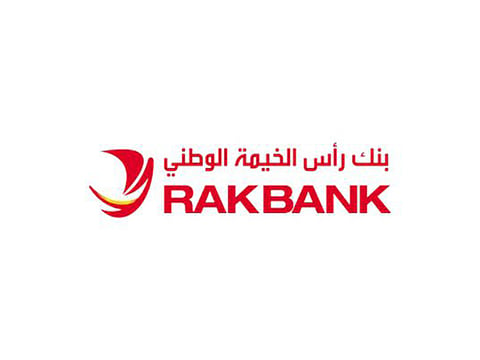RAKBank Group net profits up 32.6% in the first quarter
Decline in provisions and a diversified balance sheet boost profits

Dubai: National Bank of Ras Al-Khaimah (RAKBank) on Sunday reported a consolidated net profit of Dh205.1 million in the first quarter of 2018, up 32.6 per cent compared to the first quarter of 2017.
The bank’s total assets stood at Dh49.1 billion, up 14.6 per cent year on year. Gross loans and advances closed at Dh33.6 billion, with a 10.3 per cent increase over the same period of last year on the strength of the wholesale banking, business banking and personal banking loans. Customer deposits grew by 11.9 per cent to Dh33.3 billion in the first quarter 2018 year on year.
“We have continued our efforts in the first quarter to strengthen and diversify our balance sheet and this is paying dividends in terms of lower provisions. After peaking by the end of 2016, provisions have continued their downward trajectory, reducing by 1 per cent when compared with the fourth quarter of 2017 and 17.4 per cent from the first quarter of 2017,” said RAKBank CEO, Peter England.
Bank’s total income declined by 2.3 per cent compared to the last quarter of 2017 and dropped by 3.4 per cent year on year. “Top line income has largely stabilised as the decline during 2017 in terms of net interest income has halted and we should see a steady growth throughout the year,” England said.
RAKBank’s net interest income and net income from Islamic financing increased by 1.1 per cent in the first quarter 2018 compared to same period last year. Likewise, non-interest income was down by Dh39.4 million to Dh243.9 million mainly due to a decrease of Dh29.1 million in investment income and Dh14.3 million in net fees and commission income.
Capital adequacy ratio as per Basel III stood at 18.64 per cent compared to 20.69 per cent at the year-end 2017. The tier 1 ratio stood at 17.47 per cent. The regulatory eligible liquid asset ratio at the end of the quarter was 13.6 per cent compared to 15.0 per cent at the end of 2017. The advances to stable resources ratio and stood comfortably at 88 per cent compared to 87.8 per cent at the end of 2017.



